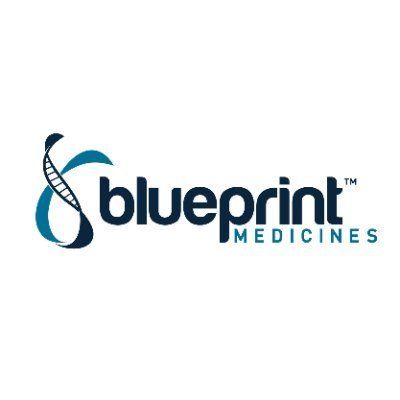预约演示
更新于:2025-12-05
BLU-701
更新于:2025-12-05
概要
基本信息
药物类型 小分子化药 |
别名 BLU 701、BLU-701 |
作用方式 抑制剂 |
作用机制 EGFR C797S抑制剂(表皮生长因子受体erbB1 C797S抑制剂)、EGFR19外显子缺失突变抑制剂、EGFR21外显子L858R突变抑制剂 |
在研适应症 |
非在研适应症 |
非在研机构- |
最高研发阶段临床1期 |
首次获批日期- |
最高研发阶段(中国)临床1期 |
特殊审评- |
登录后查看时间轴
关联
1
项与 BLU-701 相关的临床试验NCT05153408
A Phase 1/2 Study of the Highly Selective EGFR Inhibitor, BLU-701, in Patients With EGFR-Mutant Non-Small Cell Lung Cancer
This is a Phase 1/2, open-label, first-in-human (FIH) study is designed to evaluate the safety, tolerability, pharmacokinetics, pharmacodynamics, and antitumor activity of BLU-701 as monotherapy or in combination with either osimertinib or platinum-based chemotherapy in patients with EGFRm NSCLC.
开始日期2022-01-13 |
申办/合作机构 |
100 项与 BLU-701 相关的临床结果
登录后查看更多信息
100 项与 BLU-701 相关的转化医学
登录后查看更多信息
100 项与 BLU-701 相关的专利(医药)
登录后查看更多信息
1
项与 BLU-701 相关的文献(医药)MEDICAL ONCOLOGY
Targeting exon mutations in NSCLC: clinical insights into LAG-3, TIM-3 pathways, and advances in fourth-generation EGFR-TKIs
Review
作者: Kannan, Koteeswaran ; Mohan, Sumithra
Lung cancer remains the second leading cause of cancer-related morbidity and mortality worldwide, with non-small cell lung cancer (NSCLC) accounting for the majority of cases. Epidermal growth factor receptor tyrosine kinase inhibitors (EGFR-TKIs) have become the standard first-line therapy for advanced NSCLC with EGFR mutations, offering significant improvements in progression-free survival (PFS), overall survival (OS), and objective response rate (ORR) compared to chemotherapy alone. Recent studies suggest that their effectiveness decreased with the emergence of acquired resistance, such as C797S and T790M. Immunotherapy alone also shows enhanced PFS and OS over chemotherapy; however, its applicability can be limited in cases with low programmed cell death ligand 1 (PD-L1) expression and result in immune-related adverse effects like those observed in retrospective, non-randomized studies. Emerging fourth-generation EGFR-TKIs, currently under clinical trials, show promising potential to address these resistance mechanisms. Advanced inhibitors, including BBT-176, BLU-945, and BLU-701, have effectively targeted resistant mutations and reduced disease progression. Studies have suggested that combining fourth-generation EGFR-TKIs with immunotherapies targeting novel pathways like LAG-3 and TIM-3 may enhance patient outcomes. Such combination regimens aim to optimize PFS, OS, and ORR while minimizing adverse effects and addressing the limitations of current therapies. This study explores the landscape of EGFR mutations, their clinical significance, and the integration of innovative fourth-generation EGFR-TKIs with immunotherapies, emphasizing the potential of precision medicine in advancing the management of EGFR-mutated NSCLC.
21
项与 BLU-701 相关的新闻(医药)2025-12-04
8款肺癌三代靶向药物怎么选?一文理清各自特点!
当68岁的退休教师李教授被确诊为EGFR突变的晚期肺腺癌时,面对医生列出的三代靶向药选项,他陷入了迷茫。奥希替尼、阿美替尼、伏美替尼……这些名字听起来相似,却各有千秋。他的选择,可能直接决定未来数年的生活质量甚至生存期。
在肺癌精准治疗领域,EGFR突变非小细胞肺癌(NSCLC)的治疗已进入“三代同堂”的黄金时代。目前全球已有8款三代EGFR-TKI靶向药物获批上市或处于临床后期阶段,它们共同构成了对抗肺癌的“精英战队”。
这些药物不仅是科技进步的象征,更是数百万肺癌患者生命希望的具体承载。 然而,面对这一“幸福的烦恼”——8种选择,患者和医生如何做出最合适的决策?本文将为您系统梳理这8款药物的核心特点、临床数据和应用策略,帮助您在抗癌路上做出明智选择。01 三代靶向药崛起:从耐药困境到精准升级
要理解三代靶向药的价值,必须回顾EGFR-TKI的发展历程。第一代(吉非替尼、厄洛替尼)和第二代(阿法替尼、达克替尼)药物虽然显著改善了EGFR突变肺癌患者的预后,但绝大多数患者在10-14个月后会出现获得性耐药。
其中,约50-60%的耐药由T790M突变引起——这个发生在EGFR基因第20号外显子的点突变,如同给癌细胞穿上了“防弹衣”,使一代、二代药物失去作用。
三代药物的革命性突破在于:
双重抑制作用:既能有效抑制EGFR敏感突变(19del/L858R),又能强力抑制T790M耐药突变
高选择性:对野生型EGFR抑制较弱,从而显著减少皮疹、腹泻等靶向相关毒性
强大的中枢神经系统穿透力:能有效控制脑转移,解决了一、二代药物的“阿喀琉斯之踵”
如今,三代EGFR-TKI已从最初的二线治疗(T790M阳性)全面进军一线治疗,成为EGFR突变晚期NSCLC患者的标准选择。02 “标杆王者”:奥希替尼的全面领导地位
奥希替尼(Osimertinib,商品名:泰瑞沙) 作为全球首个获批的三代EGFR-TKI,堪称这个领域的“定义者”和“黄金标准”。核心特点与临床数据
一线治疗确立新标杆:基于FLAURA研究,奥希替尼一线治疗EGFR敏感突变晚期NSCLC的中位无进展生存期(PFS)达18.9个月,显著优于一代TKI的10.2个月;中位总生存期(OS)更是达到38.6个月,这是EGFR-TKI治疗史上首次突破三年大关的生存数据。
中枢神经系统疗效卓越:对于基线伴有脑转移的患者,奥希替尼的中枢神经系统(CNS)PFS达15.2个月,CNS客观缓解率(ORR)高达91%,完全改变了过去“肺癌脑转移预后极差”的认知。
术后辅助治疗的突破:ADAURA研究显示,奥希替尼用于IB-IIIA期EGFR突变NSCLC术后辅助治疗,将疾病复发或死亡风险降低83%,3年无病生存率高达80%,这是肺癌靶向辅助治疗的里程碑。
广泛应用场景:
一线治疗
T790M阳性二线治疗
术后辅助治疗
局部晚期维持治疗
安全性特征:奥希替尼的耐受性良好,常见不良反应包括腹泻、皮疹、皮肤干燥、甲沟炎等,多数为1-2级。需要特别关注的是间质性肺病(ILD)和QT间期延长,但发生率较低(ILD约3-4%)。
一位使用奥希替尼超过四年的患者分享:“它不仅让我的肿瘤缩小,最让我感激的是几乎没有影响我的正常生活。我依然可以旅行、带孙子,享受退休生活。”03 “中国智造”双雄:阿美替尼与伏美替尼的差异化优势
在中国自主研发的三代EGFR-TKI中,阿美替尼(Almonertinib) 和 伏美替尼(Furmonertinib) 表现突出,各具特色。阿美替尼:温和高效的“中国方案”
研发背景与特点:阿美替尼是我国首个自主研发的三代EGFR-TKI,其分子结构在奥希替尼基础上进行了优化,旨在平衡疗效与安全性。
关键临床数据:
二线治疗(AENEAS研究):针对T790M阳性患者,中位PFS达12.4个月,与奥希替尼相当
一线治疗(AENEAS研究):头对头比较阿美替尼与吉非替尼,中位PFS为19.3个月,优于对照组的9.9个月;中位OS尚未成熟,但趋势良好
脑转移控制:CNS ORR达68.8%,显示良好的颅内活性
安全性优势:阿美替尼在皮疹、腹泻、甲沟炎等皮肤黏膜毒性方面发生率较低,患者生活质量评分更高。其ILD发生率约为1.1%,低于同类药物。
独特优势:
中国人群数据充分,更贴合中国患者特征
价格相对更具优势
2023年在英国获批,成为首个“出海”的中国原研三代EGFR-TKI伏美替尼:灵活剂量的“多面手”
核心特点:伏美替尼最大的特点是治疗窗宽,可通过剂量调整应对不同临床情境。
差异化优势:
剂量灵活性:标准剂量为80mg QD,但对于特殊人群(如L858R突变、脑转移、罕见突变),可增加至160mg QD以提高疗效
L858R优势:研究显示,高剂量(160mg)伏美替尼对L858R突变患者有更好疗效
脑转移疗效:颅内ORR达84.6%,颅内疾病控制率(DCR)达100%
罕见突变覆盖:对EGFR 20号外显子插入突变(ex20ins)等罕见突变也显示一定活性
临床数据:FURLONG研究显示,伏美替尼一线治疗EGFR敏感突变NSCLC的中位PFS达20.8个月,创下三代TKI一线治疗PFS的新纪录。
安全性:伏美替尼整体安全性良好,最常见不良反应为转氨酶升高、皮疹等。高剂量下不良反应可管理。
肿瘤内科专家的评价:“伏美替尼的剂量灵活性为临床提供了更多个性化调整空间,特别是在处理难治性脑转移和特定突变亚型时。”04 专精特新:贝福替尼与瑞齐替尼的针对性突破
除了广谱强效的药物,三代EGFR-TKI领域还涌现出针对特定临床需求进行优化的药物。贝福替尼:脑转移的“攻坚利器”
结构创新:贝福替尼通过特殊的分子结构优化,增强了血脑屏障穿透能力,使其在脑脊液中的浓度显著高于其他三代TKI。
脑转移专长:
颅内高缓解率:针对脑转移患者,颅内ORR达70%以上
快速起效:对脑转移病灶的缩瘤速度较快
持久控制:颅内病灶缓解持续时间长
临床数据:IBIO-102研究显示,贝福替尼二线治疗T790M阳性NSCLC,总体ORR达67.6%,中位PFS达16.6个月;在脑转移亚组中表现尤为突出。
使用注意:贝福替尼采用剂量递增方案(从较低剂量开始,逐步增加至目标剂量),可能减少初期不良反应。需特别关注血液学毒性(白细胞减少、血小板减少)和头晕等不良反应。瑞齐替尼:药物相互作用的“避风港”
代谢特性优势:瑞齐替尼独特的代谢途径使其几乎不通过CYP450酶系代谢,从而极大降低了与其他药物的相互作用风险。
适用人群:这一特性使瑞齐替尼特别适合:
合并多种基础疾病的老年患者(常需服用降压、降糖、抗凝等多种药物)
需同时使用其他可能影响CYP450酶系的药物的患者
肝功能不全患者(对肝功能影响小)
临床表现:尽管在绝对疗效数据上可能与奥希替尼相当,但瑞齐替尼在合并用药复杂人群中的安全性优势明显,为这部分患者提供了更安心的选择。
药学专家指出:“对于每天需要服用5-6种药物的老年肺癌患者,药物相互作用的管理本身就是一大挑战。瑞齐替尼在这方面提供了独特的解决方案。”05 新生力量:拉泽替尼与双药组合的未来方向
肺癌靶向治疗的前沿已从单药治疗向联合策略发展,新一代药物及组合方案正在开拓新的疆域。拉泽替尼:联合治疗的“新生代核心”
研发定位:拉泽替尼是专门为联合治疗设计的新一代EGFR-TKI,其与埃万妥单抗(Amivantamab,一种EGFR-MET双特异性抗体)的联合方案代表了EGFR突变肺癌治疗的新范式。
突破性数据:MARIPOSA研究显示,拉泽替尼+埃万妥单抗一线治疗EGFR敏感突变晚期NSCLC:
中位PFS达23.7个月,显著优于奥希替尼单药的16.6个月
脑转移亚组获益更加显著
中位OS明显延长(数据尚未成熟,但已显示显著优势)
作用机制创新:这一组合实现了“三重抑制”:拉泽替尼抑制EGFR敏感突变和T790M;埃万妥单抗同时靶向EGFR和MET通路,并能通过免疫细胞介导的杀伤作用清除肿瘤细胞。
未来前景:拉泽替尼代表了EGFR-TKI发展的新方向——通过与不同机制药物的联合,克服原发性与获得性耐药,进一步延长生存期。目前该组合已被NCCN指南列为一线治疗优选方案之一。06 安全性专项对比:如何管理“小脾气”
三代EGFR-TKI整体安全性优于一、二代药物,但各有侧重,了解这些差异有助于个体化管理。各药安全性特征对比
药物
特色安全性优势
需特别关注的不良反应
特殊监测要求奥希替尼
整体耐受性好,皮肤毒性低
间质性肺病、QT间期延长、心肌损伤
定期心电图、心脏超声、关注呼吸道症状阿美替尼
皮疹腹泻发生率低,ILD风险低
转氨酶升高、血肌酸磷酸激酶升高
肝功能、肌酸激酶监测伏美替尼
剂量相关性,可调整管理
高剂量时转氨酶升高、皮疹
肝功能、根据剂量调整监测频率贝福替尼
特殊的剂量递增方案
血液学毒性、头晕、乏力
血常规、神经系统症状瑞齐替尼
药物相互作用极少
转氨酶升高、腹泻
常规肝功能监测拉泽替尼
联合方案数据,单药安全性良好
联合使用时输液反应、皮疹、甲沟炎
联合用药时的综合管理核心毒性管理策略
间质性肺病(ILD):所有三代TKI均有发生风险(0.5-4%)。一旦出现新发或加重的呼吸困难、咳嗽、发热,需立即就医检查。
心脏毒性:包括QT间期延长、心肌损伤等。用药前及期间定期监测心电图、心脏超声和心肌酶谱。
皮肤黏膜反应:虽然较一代药物减轻,但仍需注意皮疹、甲沟炎、口腔溃疡等的预防和处理。
肝功能异常:多为轻度、可逆的转氨酶升高,定期监测,必要时保肝治疗或剂量调整。
临床药师的建议:“没有绝对安全的药物,只有安全用药的患者。定期监测、及时沟通、科学管理是确保靶向治疗安全有效的关键。”07 个体化选择策略:八款药物如何选?
面对八种选择,决策应基于疗效、安全性、便利性、经济性四个维度的综合评估,并结合患者的具体情况。基于临床情境的选择框架
情境一:一线治疗初治患者
优先考虑:奥希替尼(金标准,证据最充分)、伏美替尼(PFS数据优异)
如有脑转移:贝福替尼、奥希替尼、伏美替尼(均具强CNS活性)
老年合并多种疾病:瑞齐替尼(药物相互作用少)、阿美替尼(安全性温和)
追求最长生存:考虑参与拉泽替尼+埃万妥单抗的临床研究或咨询该方案可用性
情境二:T790M阳性二线治疗
标准选择:奥希替尼、阿美替尼、伏美替尼
脑转移显著:贝福替尼可能更具优势
情境三:术后辅助治疗
目前唯一适应证:奥希替尼(ADAURA研究)
其他药物:相关研究进行中,未来可能扩展
情境四:罕见突变患者
EGFR ex20ins:伏美替尼高剂量、莫博赛替尼(非三代TKI,专门针对ex20ins)、埃万妥单抗
其他罕见突变:根据突变类型和临床研究数据个体化选择多因素决策模型
基因突变类型:19del与L858R对药物敏感性略有差异
脑转移负荷:高负荷脑转移需优先考虑CNS活性强的药物
合并症与合并用药:肝肾功能、心脏疾病、多种药物联用
年龄与体能状态:老年患者可能更关注安全性与便利性
经济因素与医保政策:各地医保报销比例和范围不同
患者偏好与生活质量诉求:对特定毒性的耐受程度不同
肿瘤科主任的临床心得:“我常告诉患者,选择靶向药就像选择一双鞋——最贵的不一定最合适,名牌不一定最舒服。我们需要找到最适合您脚型(基因型)、走路习惯(生活方式)和预算的那一双。”08 未来展望:三代TKI之后的路在何方?
三代EGFR-TKI的成功不是终点,而是新探索的起点。耐药机制的深入研究和新药研发正在进行中。
主要耐药机制与对策:
C797S突变:第三代TKI的主要耐药机制之一,四代TKI(如BLU-945、BLU-701)正在研发中
旁路激活:MET扩增、HER2扩增、RET融合等,需联合相应靶向药物
组织学转化:向小细胞肺癌转化,需联合化疗
其他未知机制:有待基础研究进一步揭示
联合治疗趋势:
靶向+靶向:如EGFR-TKI联合MET抑制剂、HER2抑制剂等
靶向+抗血管生成:如厄洛替尼+贝伐珠单抗模式在三代TKI的探索
靶向+免疫:在特定人群(如EGFR突变合并高PD-L1表达)中的尝试
靶向+化疗:克服耐药,延长控制时间
四代药物与新型疗法:针对C797S等耐药突变的四代EGFR-TKI已进入临床研究阶段;抗体偶联药物(ADC)、双特异性抗体、细胞治疗等新型疗法也在EGFR突变肺癌中展示潜力。
中国肺癌领域领军专家吴一龙教授曾指出:“EGFR-TKI的发展史,就是一部人类与肺癌斗争的进步史。从无药可用到一代、二代、三代,我们不仅给了患者更多时间,更给了他们更有质量的生活。”
八款三代EGFR-TKI的相继问世,标志着肺癌精准治疗进入了“选择时代”。没有绝对的“最佳药物”,只有最适合的个体化方案。 这种“幸福的烦恼”背后,是医学进步给患者带来的真实希望。
面对选择,患者和家属应做的不是独自焦虑,而是与您的主治医生深入沟通,共同制定“量身定制”的治疗策略。 肺癌治疗已从“一刀切”进入“一人一策”的精准医学新时代。
您或家人正在使用哪一款三代靶向药?有什么独特的体验或问题?欢迎在评论区分享您的故事和疑问,让我们共同交流抗癌路上的经验与智慧。
如果这篇文章帮助您理清了三代靶向药的选择思路,请点赞并分享给更多需要的病友。在抗癌的路上,知识就是力量,分享就是支持!
注:【愈她他同行】目前有肺癌、肝癌、肾癌、胃癌、
肠癌、胰腺癌、妇瘤、泌尿肿瘤、血液肿瘤......等几乎涵盖所有癌种的临床试验
正在招募患者!扫描下方二维码
添加医学助理一对一咨询!
愈她他同行与您同行,共创健康未来。
参与临床试验,获取国际前沿新药
免费使用机会!
更有一线专家团队为您的治疗
保驾护航!
end
全国癌症病友交流群,为您提供全方位的支持与交流平台:
具体包括:
呼吸系统肺癌病友交流群:小细胞肺癌,非小细胞肺癌(肺腺癌、肺鳞癌)...
消化系统癌症病友群:胃癌、肠癌、肝癌、胆管癌、胰腺癌、胆囊癌、食管癌、贲门癌...
妇科癌症病友群:乳腺癌、宫颈癌、卵巢癌、外阴癌、子宫内膜癌、输卵管癌...
泌尿系统癌症病友群:肾癌、前列腺癌、膀胱癌、尿路上皮癌、睾丸癌。阴茎癌...
头颈癌病友群:鼻咽癌、甲状腺癌,舌癌、口腔癌、胶质瘤...
血液癌病友群:淋巴瘤、白血病交流群...
罕见病病友群:胸腺瘤、平滑肌瘤,恶性脂肪瘤、黑色素瘤……
end
您的赞+在看+分享是我更新的动力!
也能帮到更多病友,积极关注、分享能积福接好运哦!
愿每个人都能早日康复!
分享
收藏
点赞
在看
申请上市临床结果临床研究
2025-10-30
·贝家讲谈
EGFR突变型非小细胞肺癌的靶向治疗领域正经历着前所未有的快速发展。随着第一、二代EGFR-TKI在临床应用中面临T790M耐药突变的挑战,第三代EGFR-TKI应运而生,它们通过不可逆地结合突变型EGFR蛋白的C797位点,不仅有效抑制经典敏感突变,还对T790M耐药突变具有高度活性,同时相对保留野生型EGFR,显著改善了治疗的安全性和有效性。这一领域的进展不仅体现在已有药物的临床应用上,更体现在不断涌现的新药研发和耐药机制的深入探索中。
在第三代EGFR-TKI的大家庭中,贝福替尼作为中国原研的代表性药物,展现出令人瞩目的临床价值。其独特的化学结构在传统第三代药物基础上进行优化,将吲哚氮上的甲基替换为三氟甲基,这一结构创新赋予其更广泛的EGFR突变抑制潜力。关键的III期临床试验数据充分证明了贝福替尼的卓越疗效:在EGFR敏感突变晚期NSCLC患者的一线治疗中,其中位无进展生存期达到22.1个月,显著优于对照组埃克替尼的13.8个月,风险比低至0.49。特别值得关注的是,在基线存在中枢神经系统转移的患者群体中,贝福替尼同样展现出强大的颅内疾病控制能力,中位无进展生存期达19.4个月,这一数据为伴有脑转移的EGFR突变患者带来了新的希望。然而,贝福替尼的安全性特征呈现出独特之处,最常见的治疗相关不良事件为血小板减少。基于其确切的疗效证据,贝福替尼已于2023年5月获得中国国家药监局批准用于EGFR T790M突变患者的二线治疗,2023年9月,贝福替尼适用于“具有表皮生长因子受体(EGFR)外显子19缺失或外显子21(L858R)置换突变的局部晚期或转移性非小细胞肺癌(NSCLC)成人患者的一线治疗”适应症获批上市。2024年11月28日,国家医保局、人力资源社会保障部公布《国家基本医疗保险、工伤保险和生育保险药品目录(2024年)》,贝福替尼一线治疗适应症列入国家医保目录,贝福替尼实现了医保全线覆盖,将为患者提供更多的治疗选择,改善患者的治疗效果和生活质量,同时进一步降低患者及医保负担。
除了贝福替尼,其他第三代EGFR-TKI也在各自领域展现出独特价值。拉泽替尼作为另一个重要代表,在亚洲人群中显示出优异的颅内活性和更理想的心脏安全性特征,使其成为具有心血管基础疾病患者的优选方案。中国原研的阿美替尼和伏美替尼同样在临床应用中取得显著成果,特别是在控制中枢神经系统转移方面表现出优势,为T790M耐药患者提供了更多治疗选择。值得注意的是,不同第三代TKI在耐药谱、中枢神经系统渗透性和不良反应特征方面存在差异,这为临床医生根据患者具体情况进行个体化药物选择提供了可能。然而,第三代EGFR-TKI的研发之路并非一帆风顺,如奥莫替尼(Olmutinib)因严重皮肤毒性被撤市,莫博赛替尼(Mobocertinib)虽获加速批准但因确认性试验未达终点而被撤回,这些案例提醒我们药物研发需要平衡疗效与安全性的双重考量。
随着第三代EGFR-TKI的广泛应用,新的挑战也随之而来。C797S耐药突变已成为限制第三代药物长期疗效的主要障碍,其发生率在接受奥希替尼治疗的患者中达到7%-30%。这一突变通过阻碍药物与EGFR的共价结合,导致治疗失败,亟需新一代药物来克服这一耐药机制。在此背景下,第四代EGFR-TKI的研发正如火如荼地展开,它们通过创新的作用机制,如可逆或不可逆地与催化位点Lys745结合,旨在恢复对携带C797S三重突变EGFR的抑制能力。目前多个候选药物已进入临床开发的关键阶段,TQB3804在临床前研究中显示出对EGFR 19del/T790M/C797S和L858R/T790M/C797S三重突变细胞的强效抑制活性,已进入I/II期临床试验。BDTX-1535则凭借其良好的脑组织分布特性,为控制中枢神经系统转移带来新的希望。特别值得一提的是BBT-207,该药已获得美国FDA批准开展首次人体试验,初步数据显示其对多种EGFR突变具有广谱活性。然而,第四代TKI的研发之路充满挑战,Blueprint Medicines公司开发的BLU-945和BLU-701就因未能达到预期疗效终点而在2024年终止开发,这凸显了新药研发的高风险性,也提醒我们需要对仍在研发 pipeline 中的药物保持审慎乐观的态度。
在EGFR-TKI药物不断更新换代的同时,临床治疗策略和评估方法也在持续进步。当前的治疗更加注重精细化和个体化,循环肿瘤DNA监测技术的应用使得微小残留病灶检测和耐药机制早期识别成为可能,为治疗调整提供了及时的依据。脑脊液药物浓度测定等新方法的引入,使得评估TKI的中枢神经系统活性更加精准。同时,对药物相关毒性的管理也日趋系统化,特别是心脏毒性的多维评估,结合心电图、生物标志物和影像学检查,实现了对药物安全性的全面监控。这些技术进步共同推动着EGFR突变NSCLC治疗向更加精准、全面的方向发展。
展望未来,第三代EGFR-TKI已经奠定了其在EGFR突变NSCLC治疗中的基石地位,而第四代药物的研发则为克服C797S介导的耐药带来了新的曙光。贝福替尼等中国原研药物的成功,不仅为本国患者提供了更多治疗选择,也为全球抗肿瘤药物研发贡献了中国智慧。面对依然存在的挑战,包括耐药机制的异质性、药物中枢渗透性的差异以及长期安全性的管理等,未来的研究应当致力于优化药物设计、探索合理的联合治疗策略、强化生物标志物指导的个体化治疗,同时更加关注患者的长期生活质量和生存获益。随着基础研究和临床实践的不断深入,相信在不久的将来,EGFR突变型非小细胞肺癌的治疗将更加精准、有效,最终实现将这一疾病转变为可控慢性病的战略目标。
文献来源:
Gawli CS, Patil CR, Patel HM. A clinical review on third and fourth generation EGFR tyrosine kinase inhibitors for the treatment of non-small cell lung cancer. Bioorg Med Chem. 2025;123:118146. doi:10.1016/j.bmc.2025.118146
临床3期申请上市临床结果
2024-08-24
·药智网
肺癌创新药市场的角逐,从未按下暂停键。
近日,FDA批准了强生EGFR/c-Met双抗Amivantamab+拉泽替尼联合方案,用于一线治疗患有EGFR外显子19缺失或外显子21中L858R替代突变的局部晚期或转移性NSCLC成人患者,成为与奥希替尼相比显示出更优的PFS无化疗方案。
值得一提的是,科伦博泰TROP2 ADC药物SKB264(sac-TMT)也在肺癌领域取得了突破,获NMPA批准新适应症的上市申请,用于EGFR-TKI和含铂化疗治疗失败的局部晚期或转移性EGFR突变NSCLC患者。
这些创新药物的涌现,为肺癌治疗领域带来了新一轮的较量。
下一个「肺癌创新药」王者?
肺癌是全球第一大癌种,2022年全球肺癌新发病例高达248.1万例,患者数量庞大且市场空间广阔,是各大药企的必争之地。其中,非小细胞肺癌(NSCLC)占肺癌类型的85%,而大部分NSCLC患者会出现EGFR突变。
目前最为畅销的肺癌创新药,是阿斯利康研发的第三代EGFR抑制剂奥希替尼,2023年全球销售额57.99亿美元,已获批适应症包括一线治疗局部晚期或转移性EGFRm NSCLC、局部晚期或转移性EGFR T790M突变阳性NSCLC患者等。
这么大的市场蛋糕,谁都想吃上一口。
为此,强生研发出了EGFR/MET双抗Amivantamab(埃万妥单抗),不仅能同时抑制肺癌突变的两个关键靶点,还能与其他药物联用解决奥希替尼耐药问题。
今年1月,FDA完全批准埃万妥单抗联合化疗用于一线治疗EGFR ex20ins突变的局部晚期或转移性NSCLC患者。其中,EGFR ex20ins是EGFR突变类型之一。
8月20日,埃万妥单抗再获FDA批准新适应症——联合三代EGFR-TKI拉泽替尼用于一线治疗患有EGFR外显子19缺失或外显子21中L858R替代突变的局部晚期或转移性NSCLC成人患者。
新适应症的获批,是基于III期MARIPOSA研究的积极结果:相较于奥希替尼组,埃万妥单抗+拉泽替尼联合方案可降低30%的疾病进展或死亡风险(PFS:23.7个月vs16.6个月),而且中位缓解持续时间(DOR)也延长了9个月(25.8个月vs16.7个月)。
在近期举办的WCLC 2024大会上,强生还公布了Ⅲ期MARIPOSA研究关于OS的更长随访数据,结果显示:与奥希替尼相比,Amivantamab+拉泽替尼继续显示出OS改善的趋势,同时改善了疾病进展后的预后。这一显著的研究结果,有望对一线治疗EGFR突变晚期NSCLC的格局产生重塑效应。
另外,针对奥希替尼治疗后出现进展的EGFR突变晚期NSCLC患者,根据2023 ESMO报道的MARIPOSA-2研究结果:与化疗相比,埃万妥单抗联合化疗(卡铂-培美曲塞)显著延长了无进展生存期(PFS)。该项研究是首个在奥希替尼耐药患者中显示具有统计学意义和临床意义的PFS显著改善的III期研究。
如今看来,强生在去年投资者日上的豪言“埃万妥单抗在肺部疾病组合的销售峰值为50亿美元,在一线的市占率剑指50%”,并非没有底气。
肺癌创新药层出不穷
肺癌创新药市场蛋糕巨大,入局者自然不仅有强生,药物类型也不仅有EFGR/MET双抗。
当前,针对EGFR-TKI耐药NSCLC患者的药物类型,还有PD-1/VEGF双抗、TROP2 ADC、HER3 ADC、EGFR/HER3 ADC等。
今年5月,康方生物全球首创的PD-1/VEGF双抗依沃西单抗获国家药监局批准上市,用于治疗EGFR-TKI耐药后NSCLC患者。
在2024 ASCO大会上,康方生物公布了Ⅲ期HARMONi-A研究结果(研究中有86%的患者接受了第三代EGFR-TKI治疗),结果显示:接受依沃西单抗联合化疗治疗的患者ORR为50.6%,PFS为7.06个月,显著优于化疗组。
图片来源:华泰证券研报
在TROP2 ADC领域,第一三共/阿斯利康的Dato-DXd、科伦博泰的sac-TMT(SKB264),都有开展针对EGFR-TKI耐药NSCLC患者的临床试验。
在2023 ASCO年会上,科伦博泰披露了SKB264用于经治的局部晚期或转移性NSCLC患者的Ⅱ期拓展研究数据,其中针对EGFR突变患者的ORR为60%,DCR为100%,mDoR为9.3个月,mPFS为11.1个月,12个月OS率为80.7%。该研究入组43例患者,其中22例为EGFR突变患者(所有EGFR突变患者均为EGFR-TKI耐药,59.1%的患者接受过三代EGFR-TKI治疗)。
靶向HER3的ADC药物也在肺癌领域展现出治疗潜力,包括第一三共/默沙东的HER3-DXd、百利天恒的EGFR/HER3 ADC药物BL-B01D1。
根据2023年世界肺癌大会上公布的关键性II期研究HERTHENA-Lung01结果显示,HER3-DXd对225例既往接受EGFR TKI和含铂化疗后出现病情进展的EGFR突变局部晚期或转移性NSCLC患者产生持久且具有临床意义的疗效,ORR为29.8%,DOR为6.4个月,因治疗中出现的不良事件(TEAE)导致终止治疗的患者比例较低。
值得一提的是,基于BL-B01D1在包括肺癌在内的多个实体瘤中展现出治疗潜力,百时美施贵宝(BMS)于2023年底以总额约84亿美元引进了该药的权益,其中首付款8亿美元,创下中国创新药出海交易纪录。
针对奥希替尼用药后有10%-24%的患者出现C797S耐药突变的问题,第四代EGFR抑制剂正在尝试攻克,包括Blueprint Medicines的BLU-945、Blueprint Medicines的BLU-701等,包括国内药企贝达药业、正大天晴等也在发力中,但最终能否成功研发,还有待进一步观察。
阿斯利康多措并举
为应对市场挑战、延长奥希替尼的生命周期,阿斯利康采取了多种应对策略,包括开发联用方案以提升治疗效果、探索并解决肿瘤的耐药机制问题等。
今年6月,国家药监局批准了奥希替尼第4个适应症——联合培美曲塞和铂类化疗药物一线治疗用于EGFR外显子19缺失或外显子21(L858R)置换突变的局部晚期或转移性NSCLC成人患者。
该项适应症的获批是基于FLAURA2研究的积极结果:奥希替尼联合化疗相较奥希替尼单药的疗效更优。
根据FLAURA2研究结果显示,奥希替尼联合化疗不仅可将疾病进展或死亡风险降低38%,而且中位无疾病进展生存期(mPFS)比奥希替尼单药组显著延长了8.8个月(25.5个月vs.16.7个月),由BICR评估的奥希替尼联合化疗组中位PFS也较奥希替尼单药组显著延长了9.5个月(29.4个月vs.19.9个月)。
此外,针对常见的转移部位中枢神经系统,奥希替尼联合化疗组的脑转移病灶完全缓解率也优于奥希替尼单药组(59%vs43%)。
奥希替尼耐药机制复杂多样,其中较为常见的是EGFR的C797X突变、MET扩增、HER2扩增等。
基于此,奥希替尼开展了多个联合和黄医药MET抑制剂赛沃替尼针对EGFR突变且MET异常NSCLC患者的临床试验,其中由阿斯利康主导的SAVANNAH试验(2/3L EGFRm/MET+NSCLC)进展最快,预计今年底可提交新药上市申请。
目前,和黄医药正在中国开展赛沃替尼联合奥希替尼治疗2/3L EGFRm/MET+NSCLC和1L EGFRm/MET+NSCLC适应症的Ⅲ期注册性临床,预计2025-2026年可提交NDA申请。
据临床数据显示,赛沃替尼联合奥希替尼在奥希替尼难治的EGFRm NSCLC患者(且伴随高MET异常水平)中取得了9.3个月的mDoR和7.1个月的mPFS,在基线未接受过化疗的患者中取得了9.6个月的mDoR和7.2个月的mPFS,临床数据优秀。
图片来源:开源证券研报
除一线疗法、联合用药外,阿斯利康还针对奥希替尼拓展适应症范围,开发辅助疗法和不断前移治疗线数,包括IA2-IA3期辅助可切除试验(ADAURA2)、新辅助试验(NeoADAURA)。
此外,阿斯利康还在开发EGFR/c-MET双抗ADC药物AZD9592,以解决奥希替尼耐药的问题。目前,AZD9592正处于临床Ⅰ期研究阶段,今年7月底已获得NMPA受理临床申请。
结语
在肺癌创新药市场的激烈竞争中,各大药企不断推陈出新,期望在这一庞大市场中分得一杯羹。
未来谁能在这场较量中脱颖而出,成为下一个肺癌创新药王者,值得期待。
参考资料:
1.各家公司的财报、公告、官微
2.《ELCC 2024丨群星闪耀,百家争鸣,董晓荣教授点评MARIPOSA-2研究最新数据》,ioncology,2024.03.23
3.《JAMA+ASCO双肯定,张力教授携国产首创双抗新药展现中国实力|今日前沿》,中国医学论坛报今日肿瘤,2024.06.17
4.《和黄医药-0013.HK-小分子创新药为核心,商业化和出海持续兑现-240524》,国信证券
5.《疾病控制率达100%!科伦博泰ADC创新药拟纳入优先审评,针对特定肺癌》,医药观澜,2024.08.15
6.《HER3-DXd在美国获得优先审评资格,用于治疗既往接受过治疗的局部晚期或转移性表皮生长因子受体(EGFR)突变非小细胞肺癌患者》,第一三共中国,2023.12.25
7.华泰证券、开源证券研报
声明:本内容仅用作医药行业信息传播,为作者独立观点,不代表药智网立场。如需转载,请务必注明文章作者和来源。对本文有异议或投诉,请联系maxuelian@yaozh.com。
责任编辑 | 史蒂文
转载开白 | 马老师 18996384680(同微信)
商务合作 | 王存星 19922864877(同微信)
阅读原文,是受欢迎的文章哦
抗体药物偶联物临床3期临床结果上市批准申请上市
100 项与 BLU-701 相关的药物交易
登录后查看更多信息
研发状态
10 条进展最快的记录, 后查看更多信息
登录
| 适应症 | 最高研发状态 | 国家/地区 | 公司 | 日期 |
|---|---|---|---|---|
| 非小细胞肺癌 | 临床1期 | 中国 | 2022-09-29 | |
| 腺癌 | 临床1期 | 美国 | 2022-01-13 | |
| 支气管癌 | 临床1期 | 美国 | 2022-01-13 | |
| EGFR阳性非小细胞肺癌 | 临床1期 | 美国 | 2022-01-13 | |
| EGFR突变的非小细胞肺癌 | 临床1期 | 美国 | 2022-01-13 | |
| 神经组织肿瘤 | 临床1期 | 美国 | 2022-01-13 |
登录后查看更多信息
临床结果
临床结果
适应症
分期
评价
查看全部结果
| 研究 | 分期 | 人群特征 | 评价人数 | 分组 | 结果 | 评价 | 发布日期 |
|---|
No Data | |||||||
登录后查看更多信息
转化医学
使用我们的转化医学数据加速您的研究。
登录
或

药物交易
使用我们的药物交易数据加速您的研究。
登录
或

核心专利
使用我们的核心专利数据促进您的研究。
登录
或

临床分析
紧跟全球注册中心的最新临床试验。
登录
或

批准
利用最新的监管批准信息加速您的研究。
登录
或

特殊审评
只需点击几下即可了解关键药物信息。
登录
或

生物医药百科问答
全新生物医药AI Agent 覆盖科研全链路,让突破性发现快人一步
立即开始免费试用!
智慧芽新药情报库是智慧芽专为生命科学人士构建的基于AI的创新药情报平台,助您全方位提升您的研发与决策效率。
立即开始数据试用!
智慧芽新药库数据也通过智慧芽数据服务平台,以API或者数据包形式对外开放,助您更加充分利用智慧芽新药情报信息。
生物序列数据库
生物药研发创新
免费使用
化学结构数据库
小分子化药研发创新
免费使用

